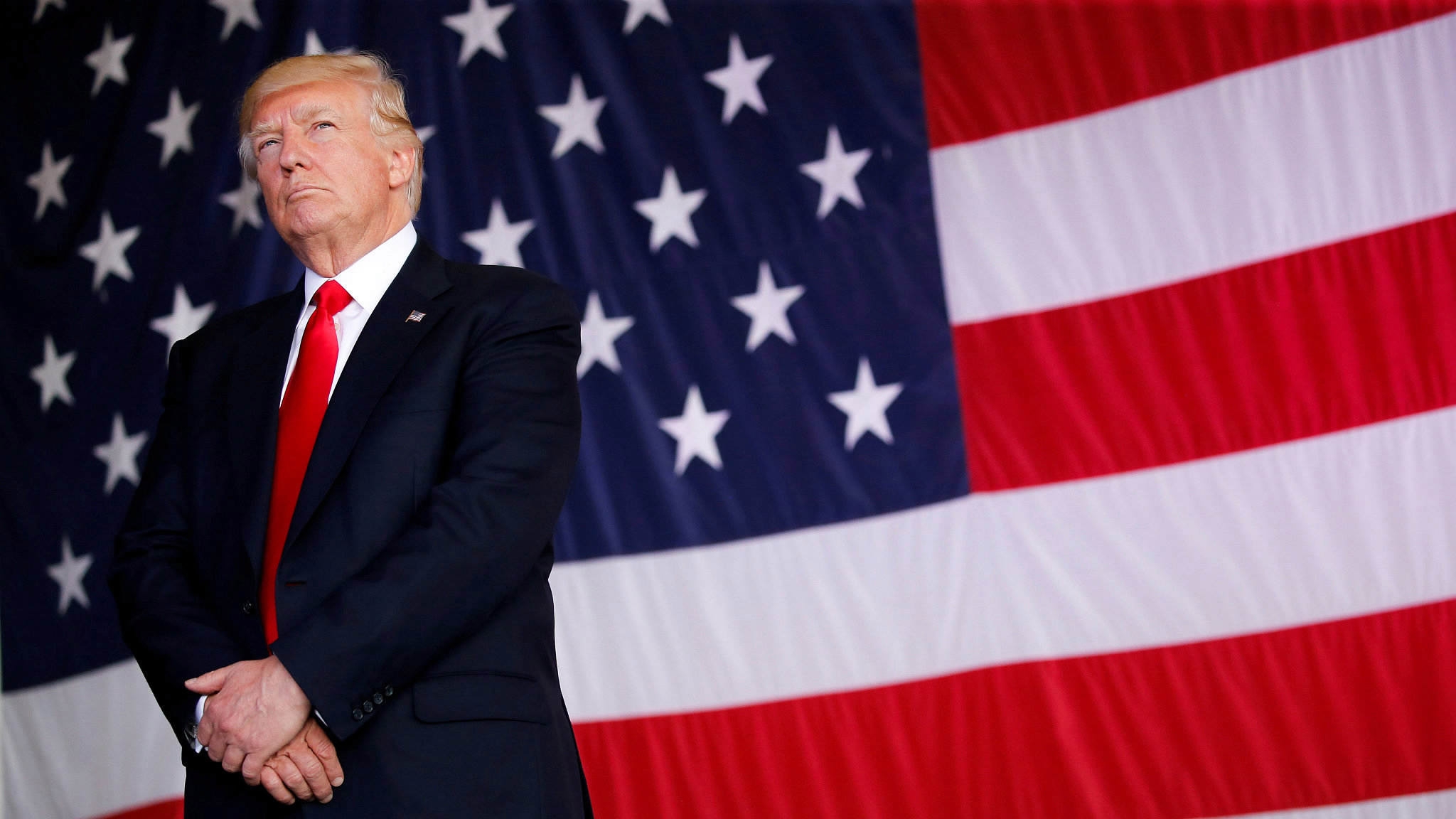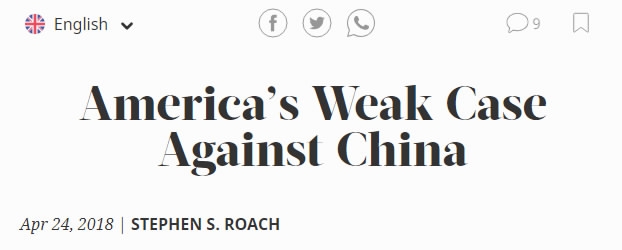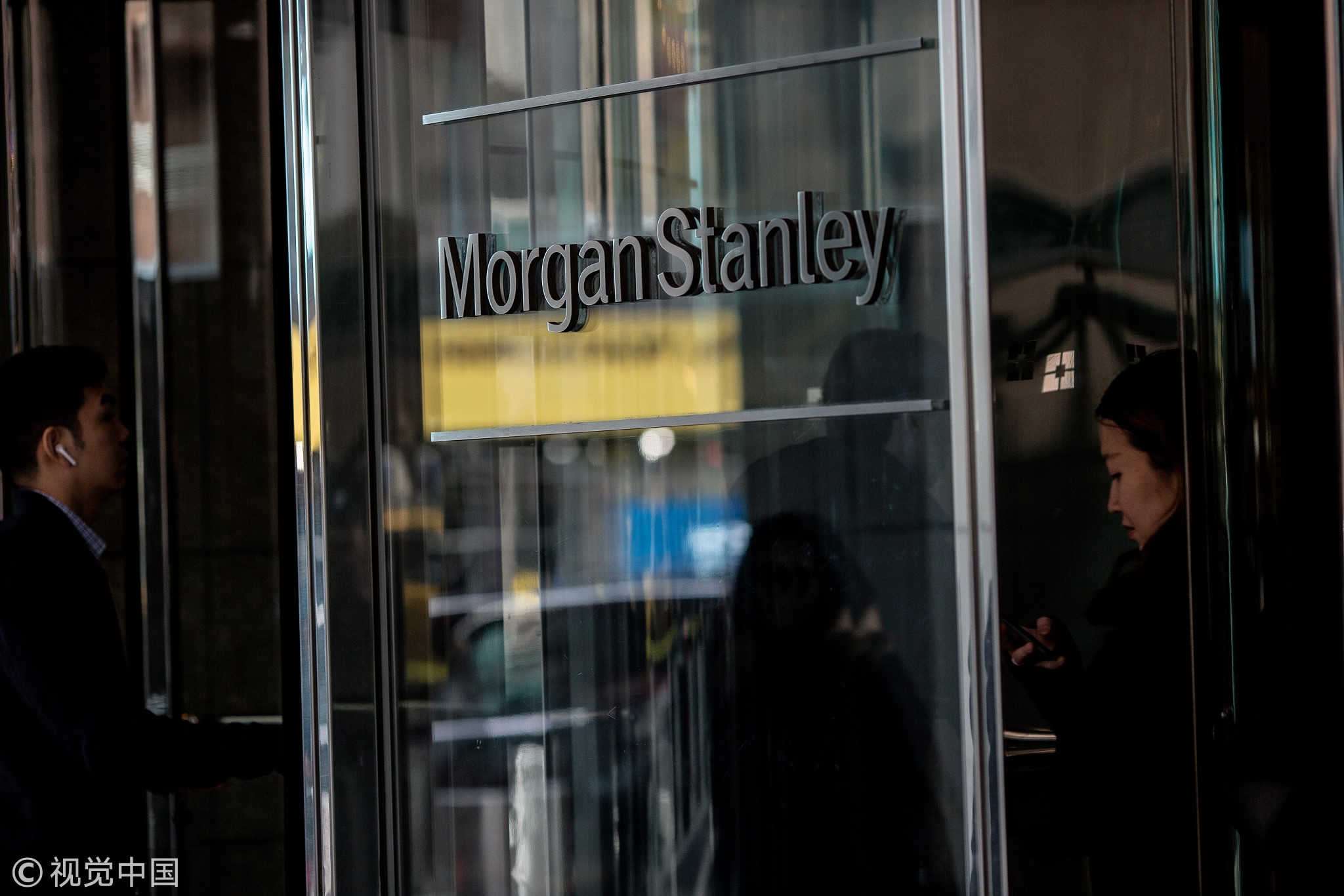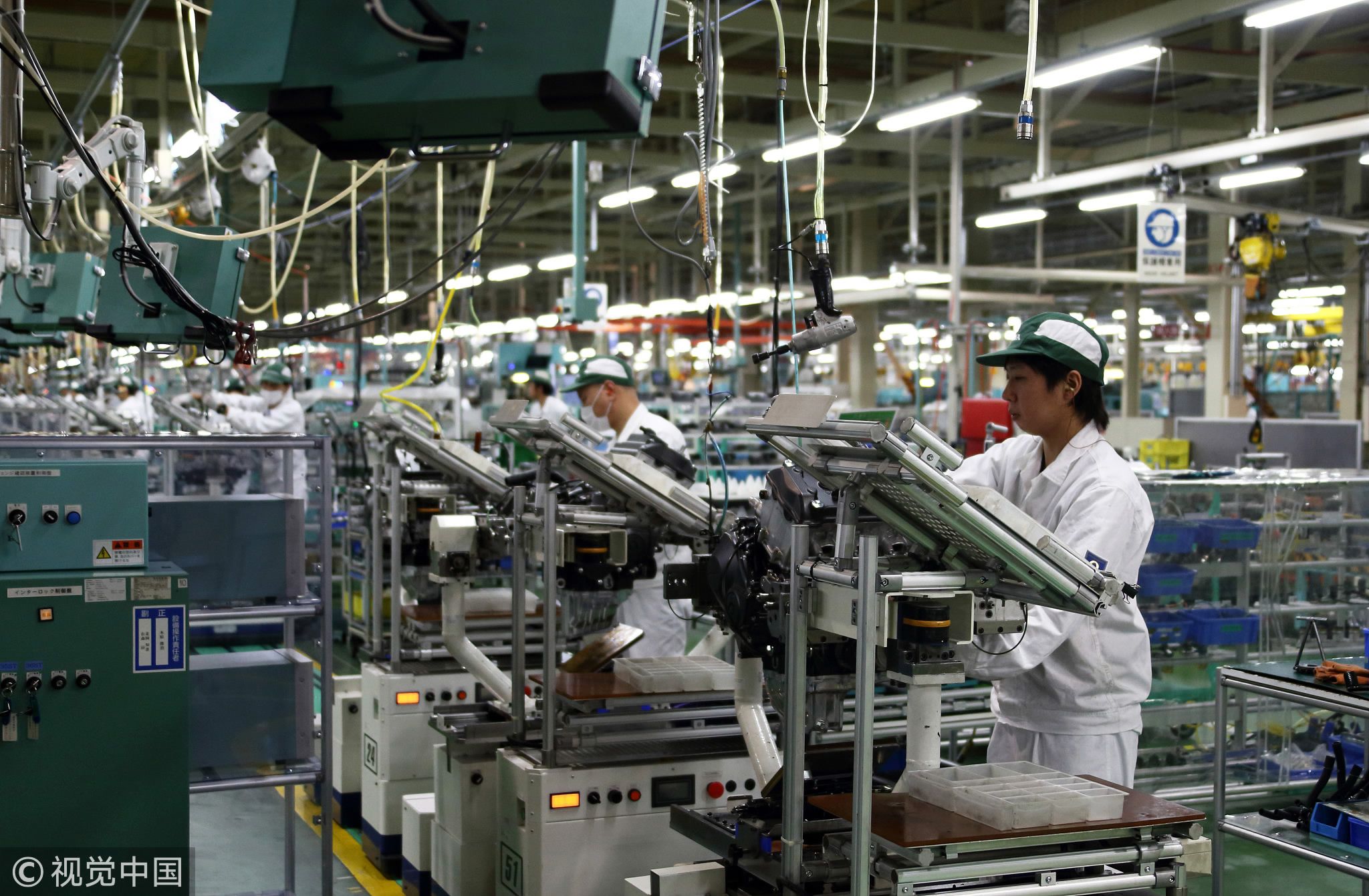
Opinions
23:04, 27-Apr-2018
Expert: America as a nation of whiners?
CGTN

In a recent article published on Project Syndicate, Stephen S. Roach, senior fellow at Yale University's Jackson Institute of Global Affairs, points out sharply that the 301 Section report, Trump’s excuse of recent tariff measures against China, is “a biased political document that has further inflamed anti-China sentiment in the US.” He summarizes the case made by the United States Trade Representative is an “embarrassing symptom of a scapegoat mentality that has turned America into a nation of whiners.”

Stephen S. Roach's article on Project Syndicate
Stephen S. Roach's article on Project Syndicate
Roach has found 2 key weaknesses in this 180-page long document, that has made this seemingly persuasive report an unjust accusation towards China.
First of all, the report complains about China's “forced technology transfer” through joint-ventures. It argues that China forces US companies to give them access to their proprietary technologies and operating systems if they want to do business in China. In this way, China is able to acquire cutting-edge technology by outright theft – which is simply not the truth.
Drawing from his own experience in the Morgan Stanley’s joint venture with the China Construction Bank to establish China International Capital Corporation (CICC) in 1995, Roach argues that American companies were not “innocent victims” who were forced into sharing those technologies. Rather, they had their own commercial interests at heart and those practices were agreed through negotiations.

Morgan Stanley headquarters building in New York, US /VCG Photo
Morgan Stanley headquarters building in New York, US /VCG Photo
While the rapid-growing Chinese market is attractive, Roach thinks that “a low-cost offshore Chinese platform” is equally inviting to multinational corporations. As Roach observes, in the Morgan Stanley case, both Morgan Stanley shareholders and CICC benefited from the deal. In any case, it is a win-win situation and the "forced technology transfer" is but a myth to justify Trump’s unreasonable tariff measures against China.
Secondly, according to Roach, the 301 Section report claims that China has been taking advantage of America’s emerging industry by employing state-funded and subsidized industrial policy. It even asserts that this has been part of China’s “going out” strategy that aims to “steal” America’s proprietary technology. Again there is the rhetoric of an “evil” socialist county against an “innocent” free US market.
Roach explains that there is no such thing as an unregulated free market, and developed countries enjoyed rapid economic growth relying on subsidized industrial policy in the past. For instance, Japan’s economic miracle in the 1970s and 80s should be attributed to “state-subsidized credit allocation and tariffs,” which by no means is in accordance with the “free market” spirit today. But it did protect Japan’s emerging industries and give them space to develop.

Production Inside a Honda Motor Co. Motorcycle Factory in Ozu, Kumamoto Prefecture, Japan, November 25, 2014. /VCG Photo
Production Inside a Honda Motor Co. Motorcycle Factory in Ozu, Kumamoto Prefecture, Japan, November 25, 2014. /VCG Photo
The strategy is also used by other developed countries, including the US itself. The influential technology breakthrough, including Internet, GPS, semiconductors and even nuclear power are “spin-offs” of a NASA project, which was heavily state-sponsored and taxpayer-funded in the 1960s.
Roach admits that innovation is the key to a country’s future development. But to assume that China is gaining it through industrial policy is “the height of hypocrisy.”
Roach concludes that the narrative of China being an “intellectual property theft” has almost become a given in American context. Trade and economics have become a political argument that the US uses to play with American’s anti-China sentiment. But even that argument has proven weak and embarrassing. After all, whining about being a victim is much easier than facing up to its own issues.

SITEMAP
Copyright © 2018 CGTN. Beijing ICP prepared NO.16065310-3
Copyright © 2018 CGTN. Beijing ICP prepared NO.16065310-3